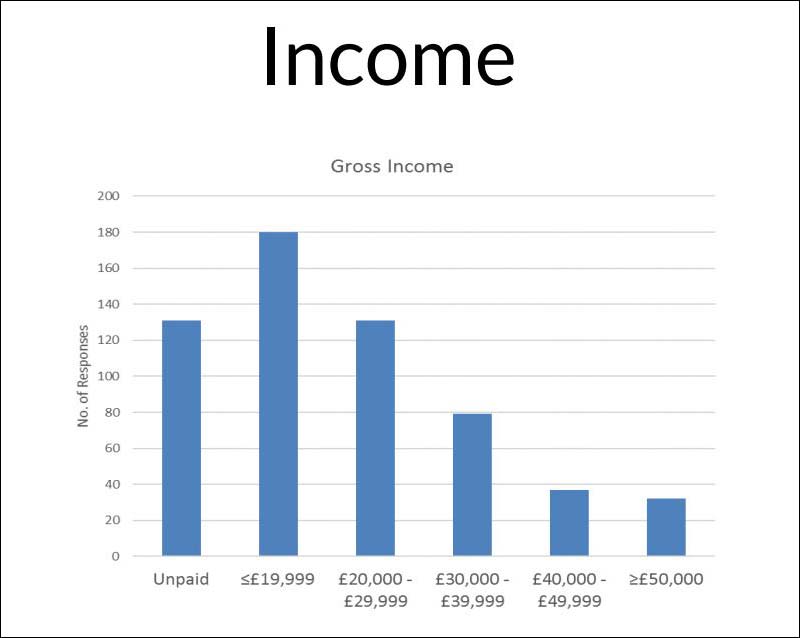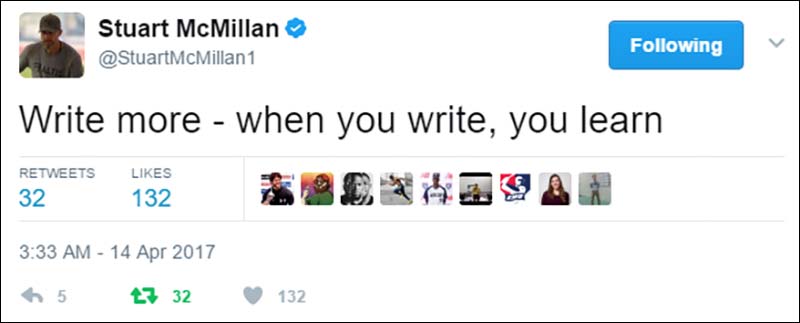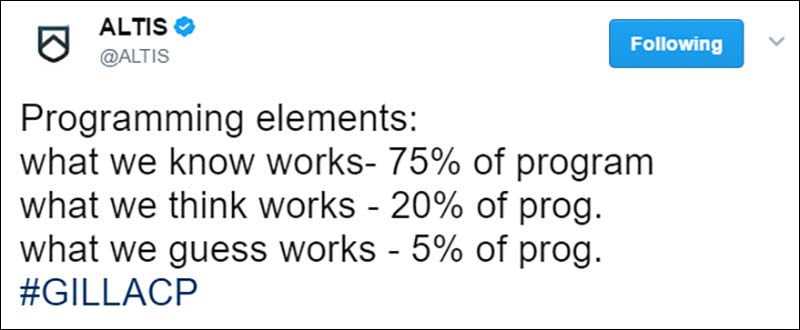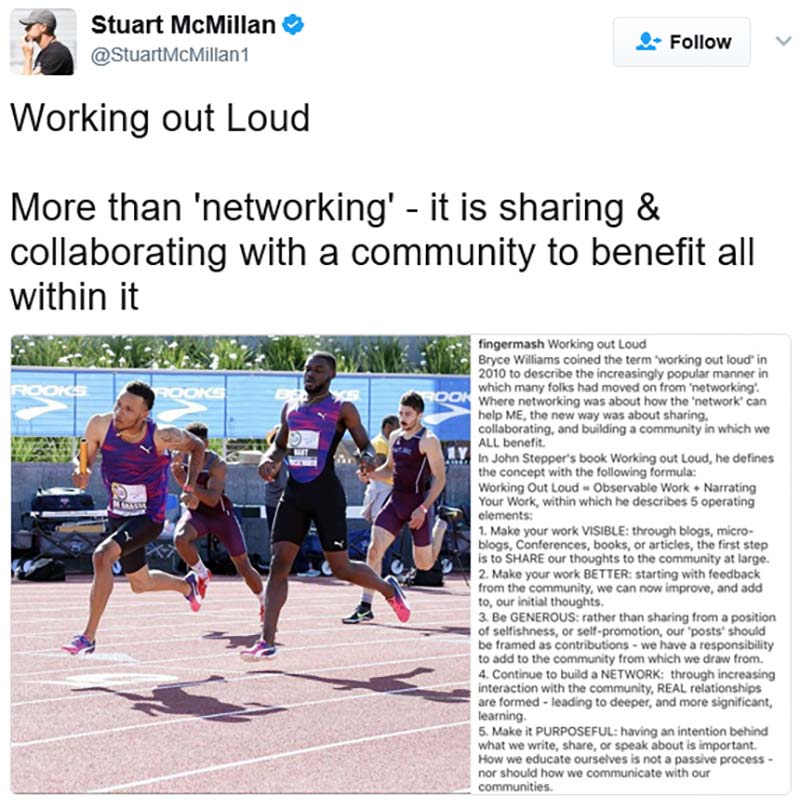
Positive responses from my previous articles on SimpliFaster have reinforced the importance of sharing information, nurturing the future generation of coaches, and fostering certain attitudes and behaviors within the coaching community.
In particular, my article about the challenges facing young coaches trying to gain a foot on the bottom rungs of this career ladder generated responses from young and enthusiastic coaches. They contacted me to develop their network, experience new environments, and enhance their learning and future opportunities. I’ve also had a few interesting interactions with the larger coaching community.
Recently, I read a piece by a coach named Tom Green looking to make his way in the world of strength and conditioning in the UK. In his article, Coach Green laments the state of the industry in the UK where a professional sports team in England was offering only 40-pence more than minimum wage to assume the role of their academy’s lead Strength Coach. The sports team in question demanded an awful lot. The coach would have invested a wealth of time and money to have earned a degree and gained significant experience to take a position earning essentially minimum wage. Are the entry requirements and demands of the job worth little more than that of unskilled menial labor?

This leads to my purpose for this article. Paying it forward.
I recently read Brett Bartholomew’s excellent book, Conscious Coaching: The Art and Science of Building Buy-In. Brett highlights that everyone benefits from the knowledge, generosity, and opportunities provided to us by experienced and selfless coaches who came before us.
And we have an obligation to demonstrate the same generosity and provide the same opportunities whenever we can. We should lend the same helping hand when the chance presents itself. Networking and mentoring are essential conduits to developing the coaching community. If older coaches don’t share what they know, their knowledge dies with them, and the new generation of coaches will make the same mistakes.
“Smart people learn from their mistakes, wise people learn from the mistakes of others.”
Unfortunately I’ve witnessed programs where individuals want to hide everything they’re doing. They have a misguided notion that they own coaching and athletic development secrets that no one else has stumbled upon and keep these secrets to themselves. I’ve even witnessed programs where members of the support staff aren’t trusted to have access to the full training plan; they’re essentially throwing darts in the dark when it comes to adding their input.
“I don’t know if there is another place in the world that prides itself on helping and sharing, as federations or universities usually hoard information. For us to share allows us to grow. It is a very unique brand of education.”—John Godina, ALTIS CEO/Founder
For those who don’t know, ALTIS runs regular coaching and performance therapy programs throughout the year, and their staff is incredibly open in sharing what they do. This environment is so refreshing and stands in stark contrast to other situations I’ve seen.
“…its purpose is based in a noble pursuit of trying to help people.”—John Godina, ALTIS CEO/Founder
A young, less experienced coach, though, may be in danger of becoming a leech. Of taking from mentors and not giving back. Not fertilizing the relationship. Once again, as Brett points out in his book, we need to find ways to give back.
It may be difficult if you’re the junior in the relationship, but there can be creative ways to do this. Brett illustrated examples of coaches who wrote personalized letters to their mentors and found other ways to contribute. Even if these efforts appear less significant than what you gain from the relationship, they will be appreciated.
A less experienced coach is in danger of taking from mentors and not giving back. Share on XI’ve experienced such situations myself. I’ve spoken to some incredibly talented and experienced coaches when I had questions about my practices or my career. One of these coaches was recently looking for information for a colleague who was considering a position in Asia. I was able to speak to some of my contacts and provide a little information to the mentor coach. It was a very small thing, but it was nice to be able to give back for a change.
As Brett mentioned, many coaches influence and, to some degree, mentor the younger generation perhaps without realizing it. Brett’s coaching journey began without any direct mentors. I can empathize with this story. Depending on logistics and your environment, you may not rub shoulders with many experienced and charitable coaches. Thankfully in this age of the internet and social media, we can expose ourselves to the thoughts, philosophies, and techniques of many leading experts. Many experienced and successful coaches are influencing a large number of developing coaches and aren’t even aware of it.
Mentoring, providing a positive influence, and sharing ideas and information are worthwhile interactions within the coaching universe. I can cite moments in my career where I’ve been influenced from afar. I wouldn’t be writing articles now were it not for the challenge laid down by Craig Pickering in his piece encouraging coaches to write.

Vern Gambetta and Jas Randhawa, ALTIS Sports Medicine Lead, both have extolled the benefits of reading, writing, communicating, and learning through mentorship. When such experienced coaches and practitioners promote the necessity of reading, writing, and sharing with your network—well you can’t get stronger recommendations.
“The two years I spent with my mentor were priceless, without
that experience I may still be a high school coach.”—Dan Pfaff
“If you’re a young coach, find a good mentor and jump in on their network of influence.”—Stuart McMillan
I’m familiar with Brett’s early career regarding the lack of formal mentors. Whether it was ineffective networking on my part, my geographic and logistical challenges, or just bad luck, my early career missed some of these experiences. I am more fortunate now. Through networking and traversing different countries and continents, I’ve expanded my network of coaches.
While working at the Hong Kong Sports Institute, I’ve been lucky to develop a relationship with the head athletics coach, Anthony Giorgi, who also has a background in strength and conditioning. When I seek answers about coaching and my career, he’s been kind enough to provide wisdom and answers.
Although we can be influenced by coaches from afar, we cannot forego the personal touch. For example, I’ve certainly been guilty (and still am at times) of engaging in the knowledge arms race: reading more and more books and articles in the hopes of short-cutting the path to the top.
The truth is we can’t escape the need to spend time developing experience. Anthony pointed out that I’m at the stage in my career where I should focus on applying what I know. This does not deride the need to read and write more, we’ve already established that these are vital to a coach’s continual growth. If the coaches I’ve mentioned can still learn and grow, you can bet that you and I still can.
At a certain stage, you have to be ruthlessly selective when it comes to deciding what you read and focus on what you’re applying and the outcomes of what you deliver. The search for knowledge is endless. There are always more books and articles to read.

I recently completed ASCA accreditation. My next step is to apply to join their pro scheme. Mentoring is a major aspect of this. Coaches can only move up levels within the structure by mentoring junior coaches. To my knowledge, no other body puts such a premium on mentoring to ensure the industry’s growth. This really sets the ASCA apart.
After reading my article about starting a coaching career, coaches trying to broaden their experiences and knowledge asked to visit the Hong Kong Sports Institute. I also had former athletes contact me who wanted to develop a career in strength and conditioning and sports science, and I’ve done my best to facilitate these requests through intern opportunities.
Sharing, networking, and mentoring are vital to developing a coaching community. Share on XCommunication, sharing, networking and mentoring are vital components of growing and developing the coaching community and the world of athletic performance. I’m pleased my writing led to interactions that positively affected some young or potential coaches. While these exchanges may not constitute formal mentoring, I hope to meet the challenge laid down in Conscious Coaching and contribute to the growth and development of up and coming coaches.
While writing this article, I was influenced by Stuart McMillan’s twitter feed on the concept of “working out loud.”

Stuart’s post encapsulated all the points I’m attempting to make in this article in a much more eloquent and concise manner. Mentoring and networking, when done well, are noble and worthy causes. Share ideas, encourage feedback, promote your work for the betterment of the community (and not merely to blow your own trumpet).
Stuart, John Stepper, and many others realize that to continue the growth and development of our field, we need to make our work observable, share ideas and knowledge, and promote good practices.
Whether you are a successful coach and major influencer like Dan Pfaff, Stuart McMillan, Vern Gambetta, and Brett Bartholomew, or you’re taking your first baby steps in coaching, you can become an important contributor to the community. And although many fields recognize the importance of mentoring, there is precious little information on what constitutes effective mentoring.
There are also many who deride those who are “too prominent” and “too vocal” on social media. Yet it’s through these mediums that I discovered this excellent piece on effective mentoring. Although it’s written from the perspective of what good mentors should do, it also provides insights into how to be a good mentee.
Why did I write this article? To highlight the importance of mentoring, networking, communication, and sharing information. To stimulate and empower more coaches and practitioners to get involved in the wider coaching community. To not be cowed by the dissenters. To provide opportunities and learning experiences to others. To help junior coaches and those across all levels of experience and expertise to understand that they have an important role to play if they are willing, diligent, and effective participants.
We all have something to offer no matter how small it may seem. In your early career, just be aware that you may need to be a little creative when giving back.
Since you’re here…
…we have a small favor to ask. More people are reading SimpliFaster than ever, and each week we bring you compelling content from coaches, sport scientists, and physiotherapists who are devoted to building better athletes. Please take a moment to share the articles on social media, engage the authors with questions and comments below, and link to articles when appropriate if you have a blog or participate on forums of related topics. — SF

